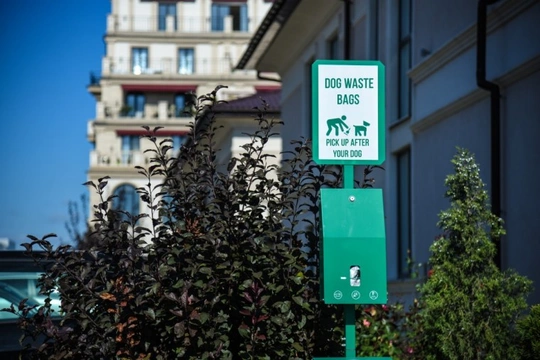
Six potentially serious and even fatal diseases dogs can catch from dog poop
Picking up your dog’s poop and disposing of it properly is not just the law, but good sense to help to prevent yourself or other people stepping in it and accidentally walking it home or otherwise coming into contact with it, which can transmit quite a number of harmful diseases to people.
However, dog poop isn’t just a risk to human health, and it can actually spread diseases from dog to dog too; and if left on the ground, can actually risk the health of other dogs and puppies even many months later.
Even healthy dogs can carry and spread diseases in their poop, and you should pick up after your dog not just when out in public, but you should also clean the poop up from your dog’s own garden right away too.
This article will tell you about six of the serious and potentially even fatal diseases that dogs themselves can catch from other dog’s poop if it is left on the ground. Read on to learn more.
Parvovirus
Parvovirus is a really horrible and easily spread viral canine health condition which puppies are particularly vulnerable to, and which is almost always fatal in affected puppies.
Parvovirus can be carried by perfectly healthy adult dogs who are not themselves affected by or sick with the condition (so you might never even know that your own dog was harbouring it) and when present, it is shed in the faeces of affected and carrier dogs.
The poop then infects the land and even if the poop is later cleared up, parvovirus can remain viable in the soil for up to a year. This disease is one that dogs are vaccinated against as standard; but puppies are very susceptible to it before they’ve received their vaccinations, and parvovirus is one of the most important reasons why pups should not meet strange dogs or go outside until their first vaccinations have taken effect.
Parvo is also a good reason to always clean up the dog poop from your own garden as well; because it can affect the soil and so could infect a puppy you might get further down the line too, even if you’re vigilant about not taking the pup out into the wider world until they’re vaccinated.
Several antibiotic-resistant bacterial infections
Dog poop carries with it quite a range of bacteria, some of which is harmless, some of which is generally harmless to dogs in good health, and some of which can be really nasty.
Some of the most potentially dangerous types of bacteria that can be carried in and spread by dog poop include E-coli, and also enterococcus, pseudomonas, and various others that you might not ever have heard of before, but that can make other dogs and even people in many cases very sick.
Some of the bacterial infections that can be caused or spread from dog to dog in faeces are also of the type known as “superbugs,” which are antibiotic resistant and incredibly difficult to treat as a result.
Infection with these can be fatal in dogs, particularly to dogs that are elderly, puppies, and those with an underlying health condition or compromised immune system.
Intestinal worms
Intestinal worms in dogs are of course spread by poop, and some of these infect the soil itself and so can remain present to infect other dogs some time after the poop is cleared up. Cleaning up promptly greatly reduces the chances of this happening.
Worms including whipworm, tapeworms, hookworms and roundworms are all shed in dog poop, and while worming products treat and eliminate worms present in a dog’s body, they do not protect them against picking up worms in the first place.
Giardiasis
Giardiasis is the name of an infection spread by a parasite called Fiardia, and this can cause acute sickness and diarrhoea in dogs affected by it. This parasite can live in a canine host for a long time without making them ill, which is known as being a carrier for the condition, and it is shed in faeces where it can then infect another dog, potentially one less robust and more vulnerable.
Coccidiosis
Coccidiosis is another illness that is spread by a parasite very commonly found in and spread by dog poop, this time called Coccidia. Again this can be carried by a perfectly healthy dog for a very long time, and it causes similar symptoms to Giardiasis, specifically diarrhoea and vomiting.
This will be quite debilitating for even an adult dog in good health, but can be fatal for a puppy or weaker dog.
Adenovirus
Finally, Adenovirus is a viral disease carried by and so spread by dog poop, which can cause acute and permanent damage to the dog’s kidneys and liver. It causes acute pain and sickness to dogs that succumb to it too, and may be fatal in weak or very young puppies.
Adenovirus is yet another virus that is very widely shed in dog poop, and that poses a risk to other dogs if the poop is not picked up and disposed of safely.



